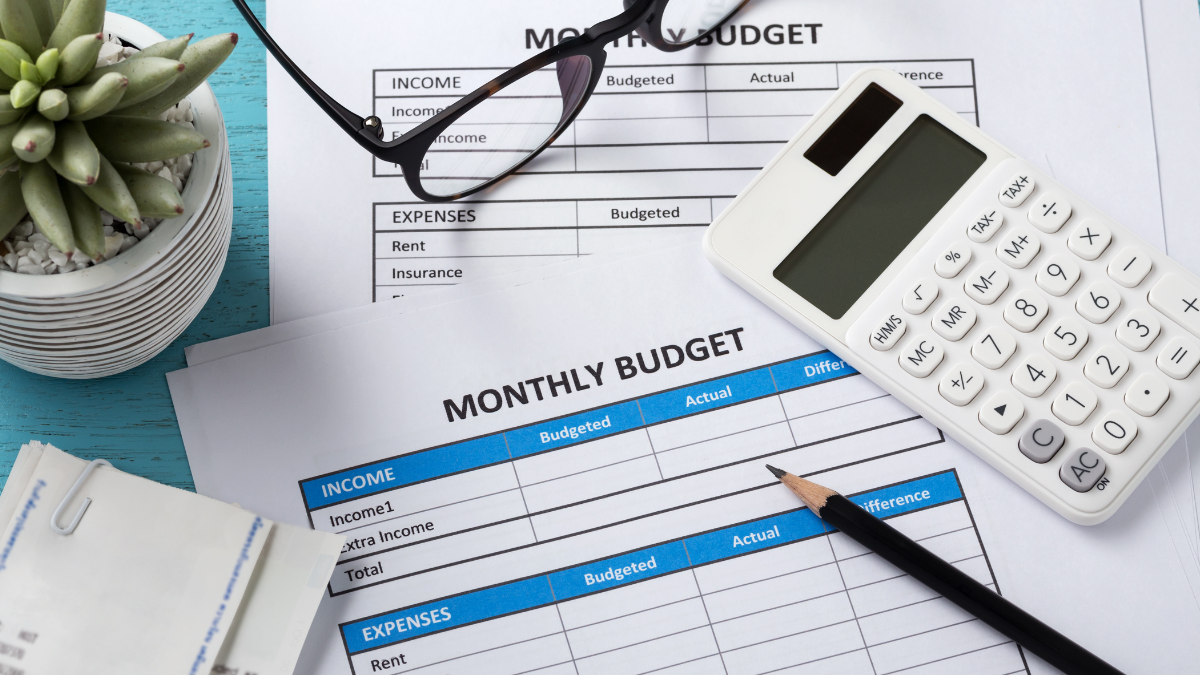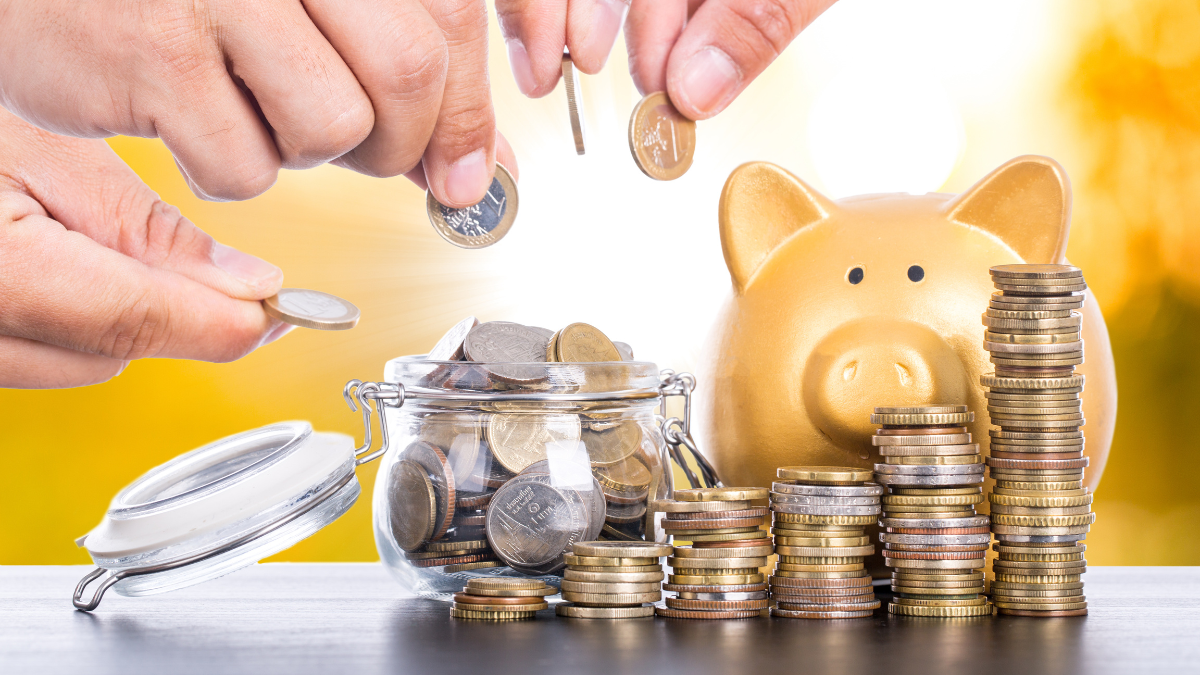Managing your money in the digital age has never been easier—thanks to budgeting apps that help you track expenses, set goals, and take full control of your finances. Whether you’re a college student trying to stretch your meal budget, a professional saving for a house, or a parent planning your family’s expenses, the right budgeting app can be a game-changer.
In this post, we’ll explore the 10 best budgeting apps for 2025 that are user-friendly, secure, and packed with features to help you live smarter financially.
Table of Contents
What Is Budgeting?
Budgeting is the process of creating a plan for how you will spend and manage your money. It helps you ensure that your income is being used wisely—covering your needs, saving for the future, and reducing debt—rather than slipping away unnoticed on impulse purchases or unnecessary expenses.
At its core, budgeting involves:
- Tracking income (how much money you earn)
- Recording expenses (what you spend money on)
- Setting limits on spending in different categories (like food, rent, entertainment)
- Making room for savings and goals (like building an emergency fund or paying off a loan)
Think of a budget as a financial roadmap—it shows you where your money is going, helps you avoid overspending, and guides you toward your financial goals. Whether you want to save for a vacation, get out of debt, or simply stop living paycheck to paycheck, budgeting is your first and most powerful step.
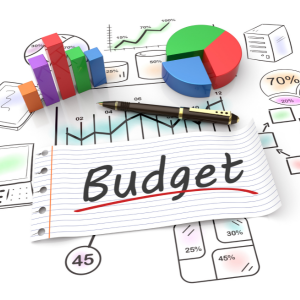
Why We Budget
Budgeting isn’t just about cutting expenses—it’s about taking control of your money and your life. Whether you’re earning a little or a lot, budgeting helps you spend smarter, save faster, and stress less.
Here’s why budgeting is important:
✅ 1. Gives You Control Over Your Money
Instead of wondering where your money went, budgeting helps you tell it where to go. You become the boss of your finances.
✅ 2. Helps You Reach Financial Goals
Whether you want to travel, buy a home, pay off debt, or retire early, budgeting turns big dreams into achievable steps.
✅ 3. Reduces Financial Stress
When you know your bills are paid and savings are growing, you sleep better at night. Budgeting brings peace of mind.
✅ 4. Prepares You for Emergencies
Life is unpredictable. A budget helps you build an emergency fund so you’re ready when unexpected expenses pop up.
✅ 5. Improves Your Spending Habits
You start noticing where your money goes—like that daily coffee or unused subscriptions—and make better choices.
✅ 6. Frees You from Debt
Budgeting lets you create a plan to pay off credit cards, loans, or other debts faster and more efficiently.
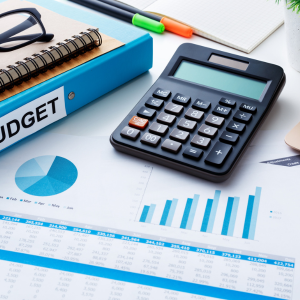
How Budgeting Apps Can Improve Your Financial Life
In today’s fast-paced, digital-first world, keeping track of your finances manually can feel overwhelming. That’s where budgeting apps come in—they simplify your money management and help you build better habits without the stress of spreadsheets or guesswork.
Here’s how budgeting apps can improve your financial life:
✅ 1. Track Every Dollar You Spend
Budgeting apps connect to your bank accounts and automatically categorize your expenses. This gives you a clear, real-time view of where your money is going—so you can cut down on unnecessary spending.
✅ 2. Set and Achieve Financial Goals
Whether it’s saving for a vacation, paying off student loans, or building an emergency fund, budgeting apps help you set specific goals and monitor your progress step by step.
✅ 3. Avoid Overspending
With real-time alerts and budget limits, you’ll know when you’re approaching your spending cap in each category. This helps you avoid accidental overspending and build mindful spending habits.
✅ 4. Reduce Financial Stress
Having your finances organized in one place reduces anxiety. You no longer have to guess if you can afford something—your app tells you instantly.
✅ 5. Build Consistency and Discipline
Most budgeting apps send reminders, insights, and monthly reports. These tools keep you accountable and motivated to stick with your budget, even when it gets tough.
✅ 6. Improve Long-Term Financial Health
Over time, consistent budgeting can lead to reduced debt, increased savings, smarter investments, and overall financial freedom.
Tips to Make the Most of Your Budgeting App
Using a budgeting app is a smart move—but just downloading it isn’t enough. To truly benefit, you need to use it regularly and strategically. Here are some practical tips to help you get the most out of your budgeting app and stay on track financially:
✅ 1. Set Clear Financial Goals First
Start with specific, realistic goals like “Save $1,000 in 3 months” or “Pay off $500 in credit card debt.” Most apps allow you to create and track these goals, giving your budget real purpose.
✅ 2. Link All Accounts for a Complete Picture
Connect all your bank accounts, credit cards, loans, and even savings accounts. This allows the app to give you a full financial overview and accurate budget insights.
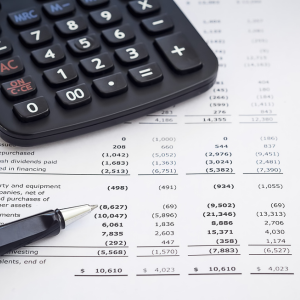
✅ 3. Categorize Expenses Correctly
Take time to review and adjust spending categories. Misclassified expenses can throw off your entire budget. Some apps let you create custom categories to match your lifestyle.
✅ 4. Review Your Budget Weekly
Set a recurring time each week (like Sunday evening) to review your spending, adjust categories, and see how you’re tracking toward your goals. Consistent check-ins help avoid surprises.
✅ 5. Use Alerts and Notifications
Turn on spending alerts, bill reminders, and low-balance notifications. These real-time updates keep you informed and in control without needing to log in constantly.
✅ 6. Adjust and Evolve Your Budget Over Time
Your income, expenses, and priorities will change. Don’t be afraid to update your budget monthly or quarterly to reflect life’s changes. Flexibility is key to long-term success.
✅ 7. Make It a Habit, Not a Hassle
Treat your budgeting app like a personal finance coach. A few minutes each day or week can dramatically improve your financial awareness and behavior over time.
Common Budgeting Mistakes to Avoid
Budgeting apps can work wonders—but only if used correctly. Many people start strong but lose momentum due to avoidable errors. Here are some of the most common budgeting mistakes—and how to fix them:
❌ 1. Not Setting Realistic Budgets
Many beginners set overly strict budgets that are hard to maintain. If you cut too deep too fast, you’ll feel deprived and give up. Start small and build gradually for long-term success.
Fix it: Use your app’s spending history to create realistic category limits. Leave room for fun—balance is key!
❌ 2. Forgetting Irregular Expenses
It’s easy to overlook occasional costs like car repairs, annual subscriptions, or holiday gifts. These can derail your monthly budget if you’re not prepared.
Fix it: Create a “sinking fund” or add a monthly category for irregular expenses in your app.
❌ 3. Not Tracking Cash Purchases
If you spend cash regularly but don’t record it, your app won’t reflect your true financial habits. This creates blind spots and inaccurate budgets.
Fix it: Manually log all cash purchases in your app. Many apps make this quick and easy.
❌ 4. Only Checking Your Budget at the End of the Month
By the time you realize you’ve overspent, it’s often too late to fix it.
Fix it: Review your budget weekly, or set app reminders to track spending in real time.
❌ 5. Ignoring Small Expenses That Add Up
$5 here and $10 there might not seem like much—but over a month, they can wreck your budget.
Fix it: Use your app to track every transaction, no matter how small. This builds awareness and prevents leaks.
❌ 6. Not Adjusting Your Budget Over Time
Life changes—new job, rent increase, or a baby on the way. Your budget needs to adapt too.
Fix it: Review and update your budget monthly or whenever major life changes happen.
❌ 7. Quitting Too Soon
Budgeting is a habit, not a one-time fix. Many people abandon it after a few weeks when they hit bumps in the road.
Fix it: Stick with it. Use your app’s progress trackers and goal reminders to stay motivated. Even small wins add up.
Best Budgeting Apps for Beginners in 2025
1. YNAB (You Need A Budget)
Best for: Zero-based budgeting & financial discipline
YNAB is a cult-favorite budgeting app that teaches you how to assign every dollar a job. It’s perfect for those who want total control and accountability over every cent they spend.
Key Features:
- Zero-based budgeting method
- Goal setting and progress tracking
- Syncs with multiple bank accounts
- Extensive learning resources
Pros:
✔ Great for serious budgeters
✔ Helps eliminate debt
✔ Strong community support
Cons:
✘ Monthly subscription fee
✘ Learning curve for beginners
Price: $14.99/month or $99/year (Free trial available)
Platform: iOS, Android, Web
2. Mint
Best for: Beginners and all-in-one money management
Mint by Intuit is one of the most popular free budgeting apps. It connects with your bank accounts and gives a full picture of your finances—from budgets to credit scores.
Key Features:
- Real-time budget tracking
- Bill reminders
- Credit score monitoring
- Spending insights
Pros:
✔ Totally free
✔ Easy to use
✔ All-in-one dashboard
Cons:
✘ Ads and product upsells
✘ Limited customization options
Price: Free
Platform: iOS, Android, Web
3. PocketGuard
Best for: Quick overview of “spendable” money
PocketGuard is ideal for people who want to know exactly how much they can spend after covering essentials. Its “In My Pocket” feature gives a snapshot of your available funds.
Key Features:
- Smart categorization
- Automatic expense tracking
- Savings goals feature
- “In My Pocket” calculation
Pros:
✔ Easy-to-read summaries
✔ Ideal for fast decision-making
✔ Helps prevent overspending
Cons:
✘ Some features behind paywall
✘ Basic reporting tools
Price: Free, Premium starts at $7.99/month
Platform: iOS, Android
4. Goodbudget
Best for: Envelope-style budgeting (manual control)
Goodbudget is a great choice for those who prefer a more hands-on approach. It’s based on the traditional envelope system, allowing you to divide your income into spending categories.
Key Features:
- Manual transaction entry
- Shared budgets for couples/families
- Debt payoff tracking
- Sync across devices
Pros:
✔ Great for intentional spending
✔ Works well for shared budgeting
✔ Free version available
Cons:
✘ No automatic syncing
✘ Time-consuming to manage
Price: Free, Premium $8/month
Platform: iOS, Android, Web
5. EveryDollar
Best for: Dave Ramsey fans & zero-based budgeting
Created by financial guru Dave Ramsey, EveryDollar encourages users to plan every dollar of income. It’s especially useful if you’re following the Baby Steps system for debt freedom.
Key Features:
- Zero-based budgeting
- Customizable categories
- Tracks spending against plan
- Ramsey+ integration
Pros:
✔ Simple and clean interface
✔ Encourages goal-oriented budgeting
✔ Great for debt elimination
Cons:
✘ Auto bank sync only in paid version
✘ Limited free features
Price: Free, Ramsey+ (includes premium) starts at $12.99/month
Platform: iOS, Android, Web
6. Simplifi by Quicken
Best for: Visual thinkers & proactive planners
Simplifi is one of the most visually intuitive apps, making it perfect for users who want to see all their finances at a glance. It creates a personalized spending plan based on your goals.
Key Features:
- Real-time tracking
- Subscription management
- Customizable reports
- Investment tracking
Pros:
✔ Clean, modern interface
✔ Powerful planning tools
✔ Works well for busy professionals
Cons:
✘ No free version
✘ Occasional syncing delays
Price: $2.99/month (billed annually)
Platform: iOS, Android, Web
7. Spendee
Best for: International users & shared budgets
Spendee supports multiple currencies, making it ideal for travelers or global families. Its colorful UI is engaging, and it supports shared wallets for family budgeting.
Key Features:
- Multi-currency support
- Shared wallets
- Cash flow visualization
- Budget alerts
Pros:
✔ Great for international users
✔ Family-friendly budgeting
✔ Free version available
Cons:
✘ No bill payment features
✘ Some features locked in premium
Price: Free, Premium from $2.99/month
Platform: iOS, Android, Web
8. Zeta
Best for: Couples managing money together
Zeta is tailored specifically for couples, whether dating, engaged, or married. It supports individual and joint expenses, making it a rare find for shared financial planning.
Key Features:
- Shared and personal accounts
- Custom expense splits
- Bill reminders and shared goals
- Relationship-friendly insights
Pros:
✔ Made for couples
✔ Strong financial transparency tools
✔ Free to use
Cons:
✘ Not ideal for solo users
✘ Less focus on investing
Price: Free
Platform: iOS, Android, Web
9. Monarch Money
Best for: Families & serious financial planning
Monarch Money combines budgeting with wealth management. It’s perfect for families or individuals looking to align budgets with long-term financial goals.
Key Features:
- Budgeting and net worth tracking
- Collaborative tools
- Goal progress reports
- Real-time syncing
Pros:
✔ Rich features for goal-setting
✔ Family and advisor collaboration
✔ Beautiful interface
Cons:
✘ No free version
✘ Premium pricing
Price: $14.99/month or $99/year
Platform: iOS, Android, Web
10. Honeydue
Best for: Couples tracking spending together
Honeydue makes budgeting fun and functional for couples. You can chat about transactions, split bills, and stay accountable—all within the app.
Key Features:
- Shared budgets
- Chat on expenses
- Bill reminders
- Categorized reports
Pros:
✔ Designed for couples
✔ Encourages transparency
✔ Free to use
Cons:
✘ Ads in the free version
✘ Limited investment tools
Price: Free
Platform: iOS, Android
Choosing the best budgeting app depends on your financial goals, lifestyle, and the level of hands-on involvement you prefer. If you want full control, YNAB or EveryDollar might be the perfect choice. Looking for a free and beginner-friendly option? Mint or PocketGuard has you covered. Couples will love Zeta or Honeydue, while frequent travelers can benefit from Spendee.
Whichever app you choose, the most important step is starting. Track your spending, set goals, and stick to the plan—and you’ll be amazed at how quickly your financial life transforms.
Conclusion: Start Budgeting Smarter in 2025
In 2025, managing your money doesn’t have to be stressful or complicated. With so many powerful budgeting apps available, there’s truly something for everyone—whether you’re a college student, a busy parent, or a couple planning your financial future together.
The best budgeting apps help you track expenses, avoid overspending, build savings, and stay focused on your goals. Apps like YNAB and EveryDollar offer deep control, while options like Mint and PocketGuard make budgeting effortless and beginner-friendly. If you’re budgeting as a couple or family, Zeta and Honeydue are excellent choices.
Remember, the key to success is consistency. The right app will make it easier, but it’s your commitment that will truly change your financial future. Start simple, test a few apps, and stick with the one that fits your lifestyle best.
Take the first step today—your future self will thank you.
FAQ: Budgeting & Money Apps
What is the #1 budgeting app?
YNAB (You Need A Budget) is often considered the best budgeting app overall. It uses a zero-based budgeting method and helps users manage every dollar with intention.
What budget app is better than Mint?
Apps like YNAB, Simplifi, and Monarch Money offer more control and advanced planning tools compared to Mint. They are great alternatives if you want fewer ads and deeper financial insights.
Are budgeting apps worth it?
Yes, budgeting apps are worth it. They help you track your spending, stick to financial goals, avoid debt, and build savings with ease.
Which app is best for keeping money?
Apps like Digit, Qapital, and Chime are great for saving and keeping money safe. They automate savings and offer helpful financial tools.
Which is the safest money app?
Top apps like YNAB, Mint, and Simplifi are safe and use bank-level encryption, two-factor authentication, and read-only account access for protection.
Can we save money in GPay?
Google Pay (GPay) itself doesn’t offer savings accounts, but in some regions (like India), it partners with banks to offer savings features like fixed deposits.
What is the best app to store money?
Apps like Chime, Cash App, and PayPal are good for storing money securely. For saving goals, use apps like Qapital or Digit.
Which is the No. 1 trusted money-earning app?
Popular trusted apps for earning money include Swagbucks (surveys), Upwork (freelancing), Meesho (reselling, India), and Fiverr (digital gigs).
Are money-saving apps safe?
Yes, most well-known saving apps are safe. They use strong encryption, offer FDIC insurance, and don’t store your login info directly.
Which is the best saving scheme?
For long-term saving, try high-yield savings accounts, PPF (India), Roth IRAs (USA), or recurring deposits. Choose based on your country and goal.




